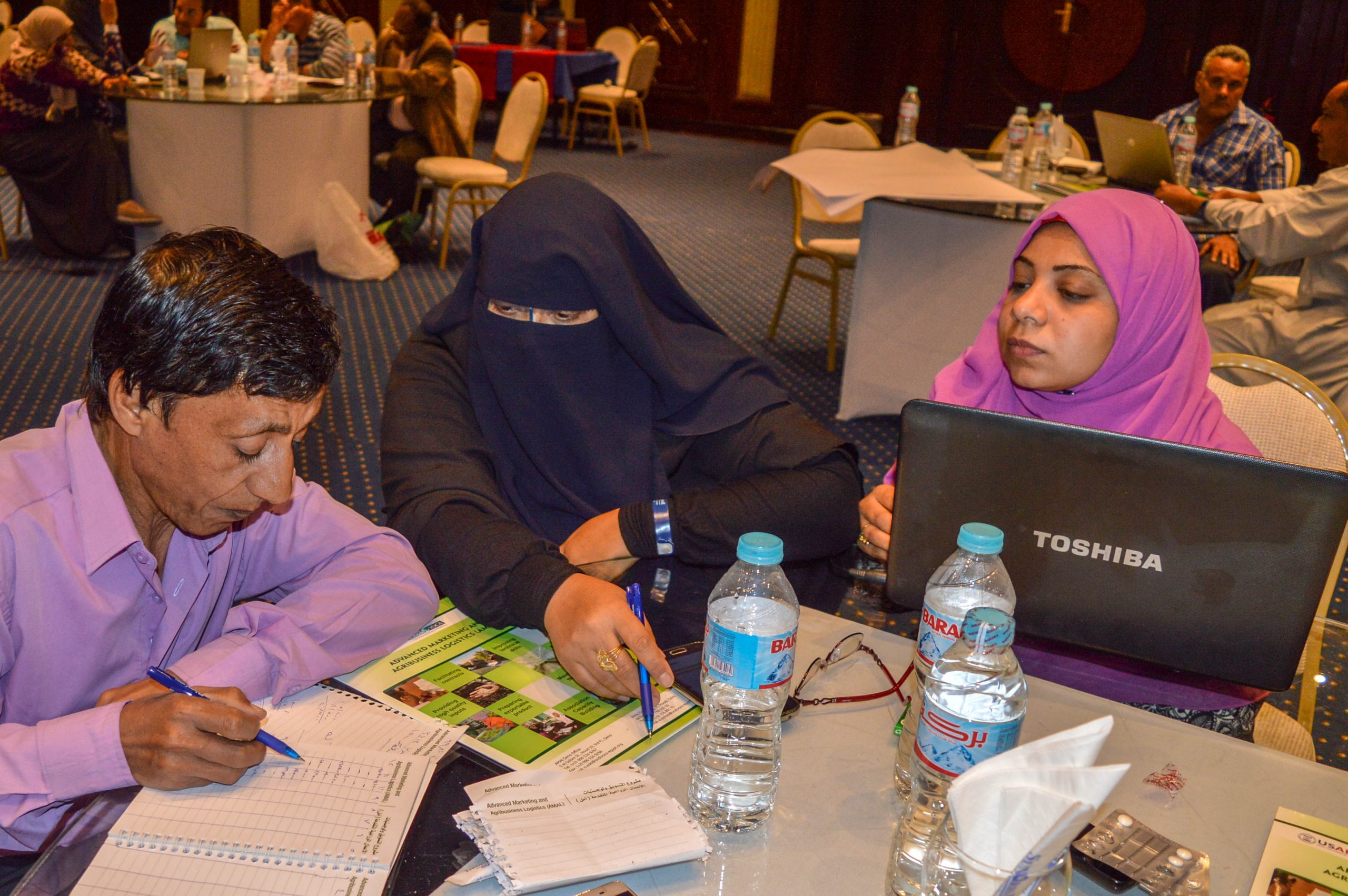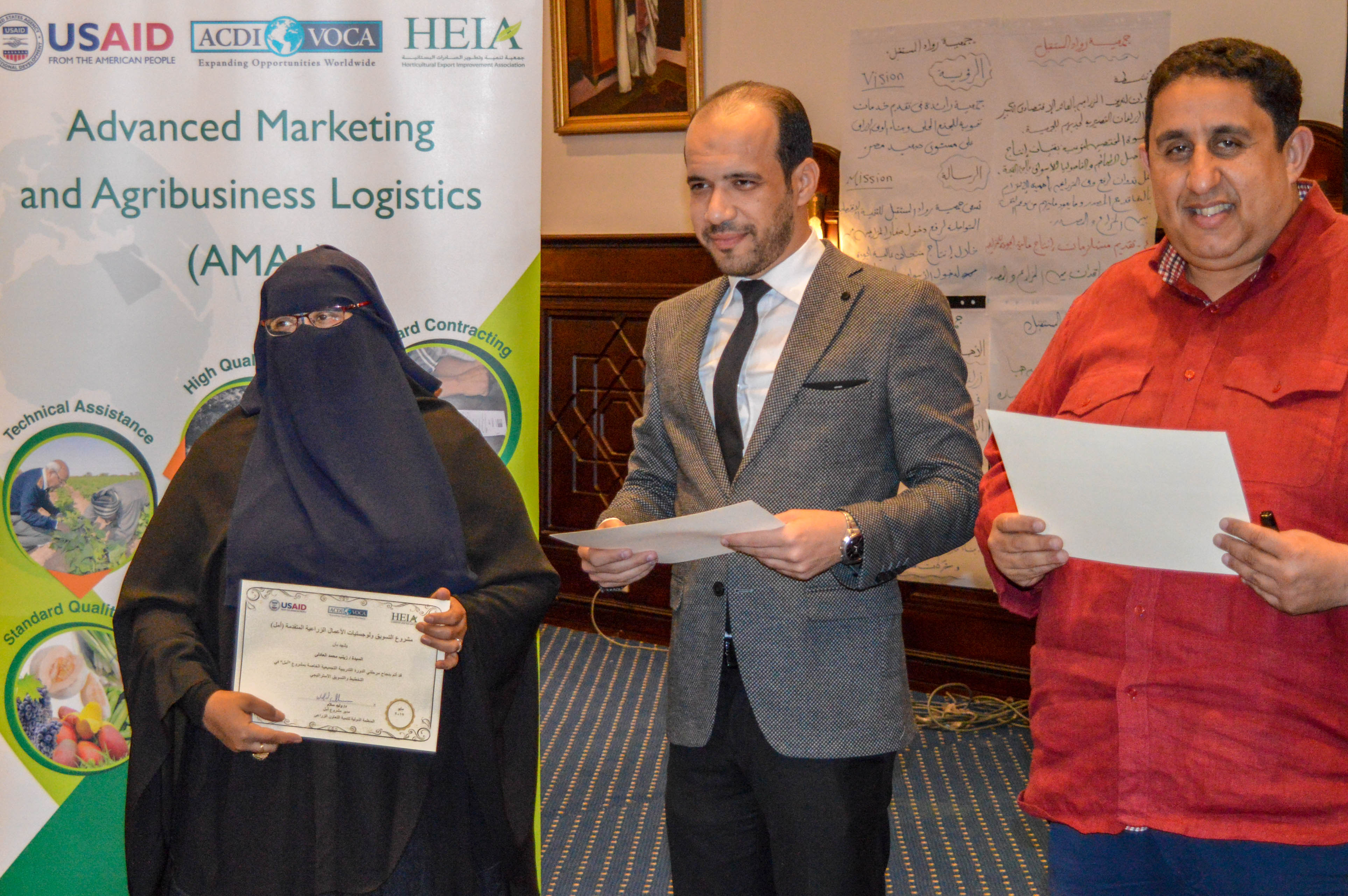
Zeinab Mohamed El-Adly is an ordinary woman from Upper Egypt who knew how to take care of her household, but had no experience in farming. Her husband died, leaving her with four children and a farm in Zarkaniyah village in Luxor, Egypt. Following her neighbors’ guidance, she grew traditional crops like wheat, sugarcane, tomatoes, and beans. When she did not turn a profit, she was unable to pay off her debts and risked having her land taken away. Then she heard about the USAID-funded Advanced Marketing and Agribusiness Logistics (AMAL) project, which helps farmers learn how to grow high-value crops for export.
Zeinab hurried to the AMAL office and explained her critical situation. The AMAL project staff offered her a training package on farm management, pest control, marketing, and communication. Project staff then trained her in how to grow green beans. Zeinab began by cultivating two feddans of her land with export green beans and contracted with an exporter to buy the yield at a decent price. The project’s consultant, Dr. Fayek Saweris, provided some hands-on guidance in fertilization and irrigation.
Before joining the project, Zeinab controlled pests and diseases by showing a sample to a pesticide dealer to diagnose the infection and recommend the appropriate pesticide. “That way had many disadvantages, as the dealer usually misdiagnosed the infections, resulting in wasted efforts and money,” Zeinab said. “Now, Dr. Fayek taught me how to diagnose the infection myself, so I saved money and time by handling the situation as it appeared.”

By mid-January 2017, Zeinab was thrilled by her yields. Her cultivated land yielded three tons per feddan. She said it would have yielded more if the aggressive aphid infection had not negatively impacted her crop. Zeinab was pleasantly surprised when she was offered a good price due to the high market prices. However, she committed to selling her products at the original, lower price as per her contract with the exporter. Her neighbors encouraged her to pay the fine and sell at the market price, but she refused and noted that the skills she learned from the AMAL project far outweighed the financial gain. The project helped her to extend irrigation pipes into the farm and qualified her to effectively manage the farm. Hence, her productivity increased by over 60 percent.
“I was a mere housewife, but [AMAL] turned me into a farm owner. I owe them a lot more than just money.” — Zeinab Mohamed El-Adly, an AMAL project participant
Zeinab has increased her income with several crops. With green beans, she saw significant profit after recouping costs for production, fertilization, irrigation, agricultural processes, and pesticides. Green beans only require three months to grow from seedling to harvest and can yield greater profits than sugarcane, which takes a whole year to harvest. They also provide natural fertilization to the land, enabling Zeinab to intercrop with wheat. Her wheat production increased by 30 percent from the previous year’s yield. Now Zeinab employs 200 girls from a nearby village to skillfully harvest the green beans.
“I never thought I’d end up being a farmer… It wasn’t something I’d chosen. I almost lost hope when AMAL entered my life. I received trainings and became qualified to run the farm and raise my children.” – Zeinab Mohamed El-Adly, an AMAL project participant
Perhaps most significantly, Zeinab has paid off the debt on her land. She even donated a portion of her revenue to support orphans, paying their tuition fees. She designated part of her land to build a mosque, for which villagers provided the building cost. Zeinab affirmed that she will assign two feddans to grow medicinal and ornamental plants and two feddans to grow export grapes, if the project continues to support her technically.
“The project helped me to safeguard my children’s inheritance, so I’ll be able to pass it on to them in better condition one day,” Zeinab said.
Learn more about the Advanced Marketing and Agribusiness Logistics (AMAL) project.








